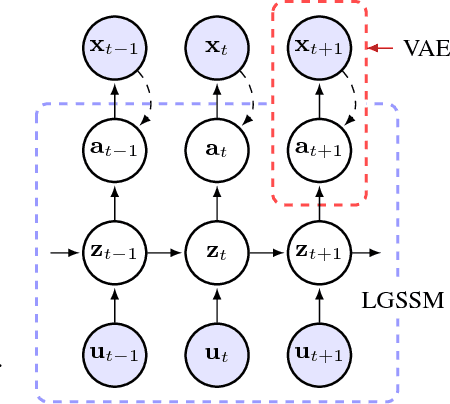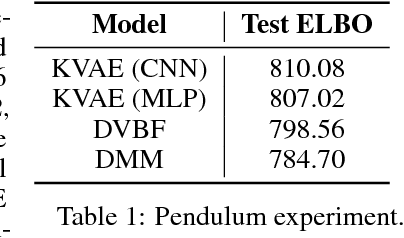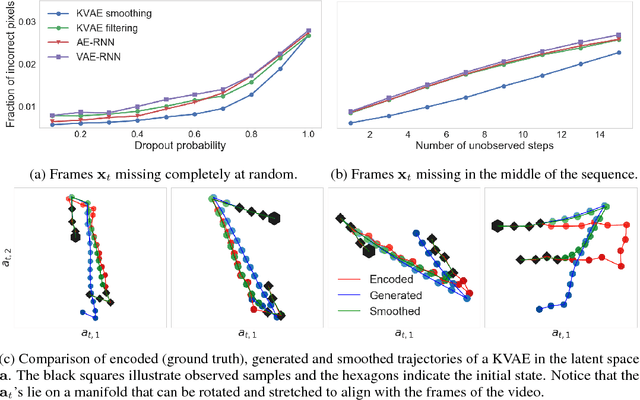Simon Kamronn
Multi-View Bayesian Correlated Component Analysis
Feb 07, 2018Abstract:Correlated component analysis as proposed by Dmochowski et al. (2012) is a tool for investigating brain process similarity in the responses to multiple views of a given stimulus. Correlated components are identified under the assumption that the involved spatial networks are identical. Here we propose a hierarchical probabilistic model that can infer the level of universality in such multi-view data, from completely unrelated representations, corresponding to canonical correlation analysis, to identical representations as in correlated component analysis. This new model, which we denote Bayesian correlated component analysis, evaluates favourably against three relevant algorithms in simulated data. A well-established benchmark EEG dataset is used to further validate the new model and infer the variability of spatial representations across multiple subjects.
A Disentangled Recognition and Nonlinear Dynamics Model for Unsupervised Learning
Oct 30, 2017



Abstract:This paper takes a step towards temporal reasoning in a dynamically changing video, not in the pixel space that constitutes its frames, but in a latent space that describes the non-linear dynamics of the objects in its world. We introduce the Kalman variational auto-encoder, a framework for unsupervised learning of sequential data that disentangles two latent representations: an object's representation, coming from a recognition model, and a latent state describing its dynamics. As a result, the evolution of the world can be imagined and missing data imputed, both without the need to generate high dimensional frames at each time step. The model is trained end-to-end on videos of a variety of simulated physical systems, and outperforms competing methods in generative and missing data imputation tasks.
 Add to Chrome
Add to Chrome Add to Firefox
Add to Firefox Add to Edge
Add to Edge